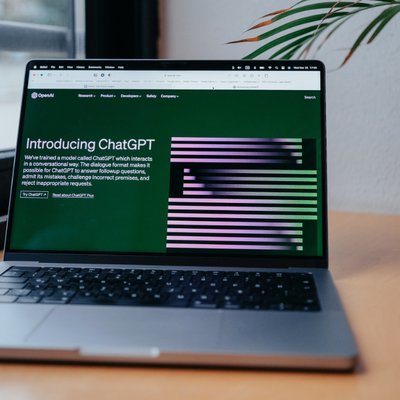EdTech: Revolutionizing Access to Quality Education for All
In addition to its global impact, EdTech plays a crucial role in bridging the education gap in developing economies, particularly for disadvantaged individuals.
June 1, 2023

AI's impact on the workforce has sparked intense debate and speculation. Sensational headlines have fueled fears of mass job losses and the replacement of human workers.
However, recent advancements in AI technology are proving these concerns unfounded, as they are actually opening up a wide range of fulfilling job opportunities.
This article delves into the emerging prospects in the AI workforce, emphasizes the significance of reskilling and upskilling, and highlights the importance of collaboration between humans and intelligent machines.
||| According to projections, by 2030, a significant portion of the workforce, estimated at 6-9%, will be engaged in occupations that are currently non-existent, thanks to the advancements in AI and automation.

The advent of artificial intelligence has created a host of novel job opportunities. Among them is the role of a prompt engineer, responsible for crafting prompts that elicit optimal responses from AI systems. PromptBase, a prompt marketplace launched in June 2022, offers individuals the chance to monetize their skills by providing prompt engineering services.
The demand for prompt engineers is rapidly expanding, with companies such as Anthropic, a San Francisco-based AI startup, actively seeking individuals with a "creative hacker spirit" to fulfill the positions of prompt engineer and librarian. Anthropic's job posting, offering an annual salary range of $280k - $375k, highlights the significant value placed on this expertise. Notably, even outside the tech sector, influential figures like Donald Glover, a multifaceted actor, musician, and producer, have recognized the practical applications of AI skills. Glover recently announced new opportunities at his multimedia studio GILGA, including openings for an AI prompt animator and an AI prompt engineer.
||| A substantial 73% of workers maintain confidence that AI and automation will not replace them in their current employment.
In the rapidly advancing AI landscape, reskilling and upskilling the existing workforce are of paramount importance. Seedily, a specialized company in generative AI image making, recognizes the critical role of training in this domain. They offer personalized training sessions aimed at enhancing individual skills and upskilling entire teams in generative AI technologies, with a particular focus on marketers.
Chris Branch, the founder and marketing director of Seedily, emphasizes the critical role of continuous learning in effectively navigating the dynamic AI landscape. He stresses the need for marketers to be agile and adaptable, keeping up with the evolving paradigm of AI to maintain competitiveness. Recognizing the importance of understanding emerging technologies and strategically integrating them into marketing strategies can give marketers a significant edge in the market.

According to "The Future of Jobs Report 2020" by the World Economic Forum, it is predicted that AI will replace approximately 85 million jobs worldwide by 2025. However, the report also highlights a positive aspect, indicating that AI has the potential to create around 97 million new job roles.
The progress made in AI is fundamentally transforming how society perceives the impact of technology on employment. Instead of solely replacing human jobs, AI is demonstrating its capacity to generate fulfilling and meaningful positions. As AI advances and becomes increasingly integrated across various industries, work itself is undergoing a revolutionary transformation, necessitating the acquisition of new skills and reshaping career paths.
This involves embracing a collaborative approach that fosters seamless collaboration between the workforce and intelligent machines. By recognizing and leveraging the unique strengths of both humans and AI, organizations can unlock the full potential of this partnership to drive innovation, enhance productivity, and achieve overall success.
Adapting to this new paradigm requires a commitment to ongoing learning and development. It is essential for individuals to continuously acquire new skills and knowledge to keep up with the evolving AI landscape. Flexibility and a forward-thinking mindset are also crucial, as they enable individuals to embrace change and adapt to new technologies and working methodologies.
For brands, it is important to foster a culture that encourages collaboration and integration between humans and AI systems. This involves providing training and resources for employees to upskill and reskill in areas related to AI. Additionally, organizations should prioritize creating an environment that embraces innovation, experimentation, and the exploration of new AI-driven solutions.

By proactively preparing for an AI-powered future, both brands and employees can position themselves to thrive in the evolving landscape of work. This collaborative approach, combined with a commitment to ongoing learning and adaptability, will enable individuals and organizations to leverage the full potential of AI technology and drive success in the digital era.
The rise of roles such as prompt engineers, as well as the increasing demand for AI skills in diverse industries, exemplify the expanding job market in the field of AI. In this era of AI, the significance of reskilling and upskilling the existing workforce cannot be overstated.
As we embrace the potential of an AI-powered future, collaboration between humans and intelligent machines will be essential. This partnership will allow us to fully unlock the capabilities of AI technology.
By harnessing the unique strengths of both humans and AI, we can drive innovation, productivity, and create new opportunities across various sectors.
Embracing this collaborative approach will shape a future where humans and intelligent machines work together harmoniously to achieve remarkable outcomes.